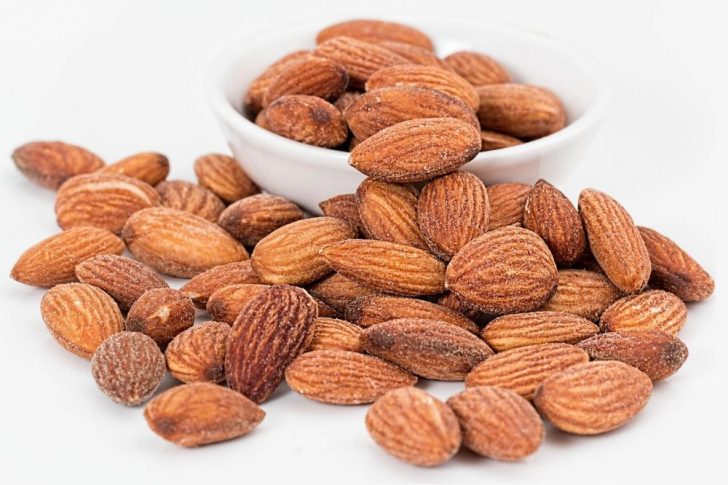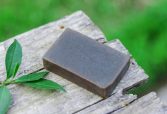Okinawa Diet: A Comprehensive Guide to a Healthy Lifestyle

Introduction:
The Okinawa Diet has gained significant attention in recent years for its association with increased longevity and overall health. Originating from the island of Okinawa in Japan, this traditional diet has captured the interest of researchers and health enthusiasts alike. In this article, we will provide a thorough overview of the Okinawa Diet, its various types, popular practices, quantitative measurements, differences between them, and a historical analysis of their advantages and disadvantages.
1. An Overview of the Okinawa Diet:

The Okinawa Diet emphasizes a plant-based, nutrient-rich eating pattern heavily influenced by the traditional consumption on the island. The diet is characterized by high consumption of fruits, vegetables, whole grains, legumes, and lean proteins. It is low in calories and saturated fats while encompassing a balanced intake of essential nutrients, vitamins, and minerals. The philosophy behind the Okinawa Diet revolves around moderation, mindfulness, and the concept of ”Hara hachi bu,” which translates to eating until 80% fullness.
2. Comprehensive Presentation of Okinawa Diet:
a) Types of Okinawa Diet:
i. Traditional Okinawa Diet: In this type, individuals adhere closely to the traditional Okinawan dietary practices, primarily consuming locally grown vegetables, fruits, legumes, and fish.
ii. Modified Okinawa Diet: This variant incorporates elements of the traditional Okinawa Diet while allowing flexibility to include other foods and cuisines that align with the diet’s principles.
iii. Okinawa-inspired Diets: These diets are adaptations of the Okinawa Diet, incorporating similar concepts but focusing on foods more commonly found in other cultures.
b) Popular Practices:
i. Emphasis on Whole Plant Foods: The Okinawa Diet promotes the consumption of a diverse range of fruits, vegetables, and whole grains to provide ample dietary fiber, antioxidants, and essential nutrients.
ii. Limited Calorie Intake: The traditional Okinawa Diet is low in calories, contributing to the longevity and healthy weight maintenance observed among the Okinawan population.
iii. Fish and Seafood: While predominantly plant-based, the Okinawa Diet includes moderate consumption of fish and seafood, providing essential omega-3 fatty acids and other beneficial nutrients.
iv. Fermented Foods: Fermented soy products, such as miso, tofu, and tempeh, are commonly consumed in the Okinawa Diet, contributing to gut health and providing additional protein sources.
3. Quantitative Measurements of the Okinawa Diet:
Research has shown that the Okinawan population follows a calorie-restricted diet, consuming approximately 20% fewer calories than the average Japanese intake. This characteristic plays a crucial role in the health benefits observed in Okinawa, such as lower rates of chronic diseases, reduced inflammation, and improved cellular health.
4. Differences Between Okinawa Diets:
While the overall principles of the Okinawa Diet remain consistent, variations exist in modern adaptations and interpretations. These differences can include the inclusion of animal products, modifications of specific food types, or changes in recommended portion sizes. Understanding these distinctions is essential for individuals seeking to adopt an Okinawa-inspired eating pattern best suited to their lifestyle and preferences.
5. Historical Analysis of Advantages and Disadvantages:
a) Advantages of the Okinawa Diet:
i. Longevity: The Okinawa Diet’s association with increased lifespan and a healthy aging process is one of its greatest advantages.
ii. Disease Prevention: The Okinawan population experiences lower rates of age-related diseases, including heart disease, certain cancers, and neurodegenerative conditions like Alzheimer’s disease.
iii. Nutrient Density: The emphasis on whole plant foods and lean proteins ensures a high nutrient density in the diet, aiding in overall health and immune function.
b) Disadvantages of the Okinawa Diet:
i. Cultural Adaptation: Replicating the Okinawa Diet completely outside of the traditional context may be challenging due to the availability and affordability of certain Okinawan-specific foods.
ii. Individual Variations: While the Okinawa Diet serves as a general guideline, individual variations in metabolic rates, health conditions, and personal preferences must be considered for optimal results.
In conclusion, the Okinawa Diet presents a promising approach to a healthy lifestyle, emphasizing plant-based, nutrient-dense foods, and calorie moderation. Its association with longer lifespans, disease prevention, and overall well-being further adds to its appeal. By understanding the different types, popular practices, quantitative measurements, variations, and historical advantages and disadvantages, individuals can make informed choices when incorporating Okinawa-inspired principles into their own lives.
[INSERT VIDEO HERE: A short video showcasing the key principles and benefits of the Okinawa Diet]
References:
1. Willcox DC, et al. The Okinawan diet: health implications of a low-calorie, nutrient-dense, antioxidant-rich dietary pattern low in glycemic load. J Am Coll Nutr. 2009 Aug;28 Suppl:500S-516S.
2. Natcher M, et al. The Okinawan diet: a healthy low-fat way of eating. Asia Pac J Clin Nutr. 2001;10(2):159-64.
3. Pes GM, et al. Lifestyle and nutrition related to male longevity in Sardinia: an ecological study. Nutr Metab Cardiovasc Dis. 2013 May;23(5):212-9.
FAQ
What is the Okinawa Diet?
What are the differences between various types of Okinawa Diet?
What are the advantages of the Okinawa Diet?
Fler nyheter
Behandlingshem en väg till trygghet, struktur och förändring
Introduction: The Okinawa Diet has gained significant attention in recent years for its association with increased longevity and overall health. Originating from the island of Okinawa in Japan, this traditional diet has captured the interest of resea...
03 februari 2026
Kiropraktor köping vägledning till bättre rörelse och mindre smärta
Introduction: The Okinawa Diet has gained significant attention in recent years for its association with increased longevity and overall health. Originating from the island of Okinawa in Japan, this traditional diet has captured the interest of resea...
01 februari 2026
Kiropraktor i Täby – när ryggen säger ifrån
Introduction: The Okinawa Diet has gained significant attention in recent years for its association with increased longevity and overall health. Originating from the island of Okinawa in Japan, this traditional diet has captured the interest of resea...
05 januari 2026
Homeopati behandling: en helhetssyn på hälsa
Introduction: The Okinawa Diet has gained significant attention in recent years for its association with increased longevity and overall health. Originating from the island of Okinawa in Japan, this traditional diet has captured the interest of resea...
05 januari 2026











